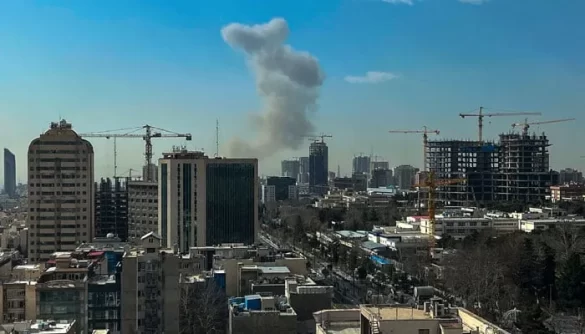Emotional Graduation in Gaza
In Gaza, a graduation ceremony for orphaned Palestinian children turned into a deeply emotional gathering. Dozens of boys and girls, dressed in white gowns and caps, stood together to celebrate their academic progress. Yet the atmosphere was overshadowed by grief.
Many of the children had lost one or both parents in recent Israeli attacks. Instead of smiling faces, tears and sorrow filled the event. Several children clutched framed photographs of their late mothers and fathers. Guests and organizers were moved to tears, unable to hold back their emotions.
According to the Palestinian Central Bureau of Statistics, more than 39,000 Palestinian children have been orphaned since October 2023. This tragic rise in orphaned children is directly linked to the relentless bombardments, where Israeli strikes on Gaza have already killed over 62,000 people. Humanitarian groups say this figure reflects not only the intensity of the conflict but also the long-term trauma facing Gaza’s younger generation.
Between Celebration and Mourning
The ceremony was meant to highlight resilience and the importance of education, even during war. However, the contrast was stark. Speeches about achievement were accompanied by sobs from the children. Instead of cheering, many attendees bowed their heads in silence.
For children in Gaza, milestones such as graduation carry mixed emotions. They symbolize hope for the future, but also serve as painful reminders of absent parents. Aid workers describe these events as vital for restoring a sense of normalcy, yet acknowledge that psychological wounds remain deep.
Solidarity Abroad: Protests in Sweden
The plight of Gaza’s children is resonating far beyond the Middle East. In Gothenburg, Sweden, children staged a peaceful protest to show solidarity with their Palestinian peers. Carrying Palestinian flags and posters of injured or orphaned children, they marched through city streets, chanting for justice and peace.
Organizers of the rally emphasized that the demonstration was not just an act of sympathy but a demand for international accountability. “These children deserve more than compassion,” one activist said. “They deserve protection under international law.”
Such demonstrations are part of a growing wave of global activism. In European cities including London, Paris, and Berlin, marches calling for a ceasefire have repeatedly drawn thousands.
UN Report: Gaza Faces Highest Disability Rates
Adding to the crisis, a recent United Nations report revealed that Gaza now has the world’s highest number of people living with war-related disabilities. The report estimates that nearly 4,800 people—many of them children—have undergone amputations since the conflict escalated in late 2023.
Before the war, Gaza already had more than 2,000 individuals living with disabilities. The new figures reflect a dramatic rise, driven by relentless bombardments and limited access to advanced medical care. International health organizations warn that many survivors risk permanent disability due to shortages of prosthetics, rehabilitation centers, and trauma therapy.
Aid agencies stress that children are disproportionately affected. Injured boys and girls face not only physical challenges but also social isolation and limited educational opportunities.
Mounting Calls for Ceasefire
Meanwhile, political developments continue. The Israeli Prime Minister has instructed officials to begin discussions on a potential ceasefire in Gaza. While no timeline has been announced, the move comes amid increasing international scrutiny.
World leaders and human rights groups have raised questions about alleged war crimes and the scale of the humanitarian crisis. The United Nations, the European Union, and several non-governmental organizations have urged for immediate steps to protect civilians, particularly children.
A Generation in Crisis
The images from Gaza’s orphan graduation illustrate a broader reality: an entire generation is growing up in conflict. Beyond statistics, each child represents a story of loss, resilience, and uncertain future.
As global attention oscillates between diplomatic negotiations and military developments, the voices of Gaza’s children serve as a reminder of the human cost of war. For them, graduation is not only a step forward in education but also a cry for recognition, dignity, and peace.















